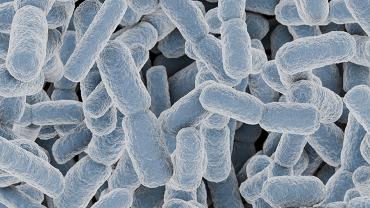
Chronic urticaria is a common dermatologic condition characterized by a raised and often itchy rash. It is related to the allergic response and affects approximately 15% of the population at least once in a lifetime. Antihistamines are a common treatment for chronic urticaria, but research suggests they may not adequately provide resolution in up to 50% of individuals.
Probiotics have been a recent topic of research regarding the allergic response. Supplementation with probiotics has been shown to help promote a healthy Th1/Th2 balance. They may also inhibit the production of interleukin (IL)-4, IL-5, and immunoglobulin (Ig)E. Certain species of Lactobacillus have been shown to modulate the presence of Th2 cytokines IL-4 and IL-5. L. paracasei was shown in laboratory studies to induce IL-12 and inhibit IL-4. IL-12 is associated with Th1 activity and IL-4 with Th2.
A recently published article by Atefi and colleagues explored the relationship between probiotic use and chronic urticaria. This randomized controlled trial involved supplementation with probiotics for 8 weeks in 42 individuals experiencing chronic urticaria. Study participants were randomized into two groups of either a placebo plus an antihistamine or a probiotic plus an antihistamine. Patients in the intervention arm received synbiotic capsules twice daily containing Lactobacillus rhamnosus, L. casei, L. acidophilus, L. bulgaricus, Bifidobacterium longum, B. breve, and Streptococcus thermophilus. The capsules also contained fructooligosaccharides to act as a prebiotic. Prebiotics such as fructooligosaccharides are fermented by gut microbes and help stimulate the activity of the intestinal microbiome.
Study results indicate that the urticaria number was significantly lower in the treatment arm as compared to the placebo. Itching severity was also significantly lower in the group receiving the probiotic intervention. More broadly, there was no statistically significant difference between the two intervention groups at the study conclusion. No significant adverse events were reported.
Atefi and colleagues conclude that for the participants experiencing symptoms related to chronic urticaria, even after first-line interventions, probiotics helped to improve quality of life and symptom scores. In addition, individuals receiving the combination therapy were shown to experience reductions in the rate of itching and a higher mean reduction rate of symptom scores. The authors describe the sample size and loss to follow-ups as major study limitations.
Although more research is needed before conclusions can be made, probiotics may support the body’s response to chronic urticaria. Research indicates that probiotics may help support immune health, the inflammatory response, and certain aspects pertaining to the allergic response.
By Colleen Ambrose, ND, MAT